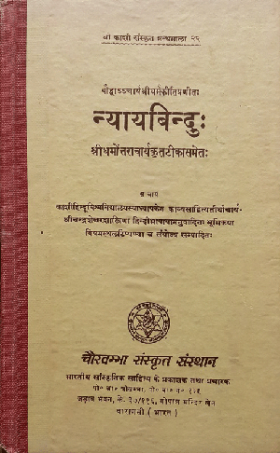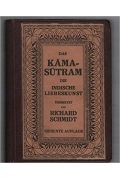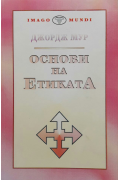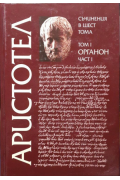Dharmakīrti's philosophy is based on the need to establish a theory of logical validity and certainty grounded in causality. Following Dignāga's Pramāṇasamuccaya, Dharmakīrti also holds that there are only two instruments of knowledge or 'valid cognition' (pramāṇa); "perception" (pratyaksa) and "inference" (anumāṇa). Perception is a non-conceptual knowing of particulars which is bound by causality, while inference is reasonable, linguistic and conceptual.[1] In the Pramāṇavārttika Dharmakīrti defines a pramana as a "reliable cognition". What it means for a cognition to be reliable has been interpreted in different ways. Following commentators like Dharmottara, who define it as meaning that a cognition is able to lead to the obtaining of one's desired object, some modern scholars such as Jose I. Cabezon have interpreted Dharmakīrti as defending a form of Pragmatism.[11] Tillemans sees him as holding to a weak form of correspondence theory, which holds that to "confirm causal efficacy" (arthakriyāsthiti) is to have a justification that an object of cognition has the causal powers we expected.[1] That justification comes through a certain kind of non-conceptual perception (pratyakṣa) which is said to be an "intrinsical source of knowledge" (svataḥ prāmāṇya) which is ultimately reliable. Dharmakīrti sees a cognition as being valid if it has a causal connection with the object of cognition through an intrinsically valid, un-conceptual perception of the object which does not err regarding its functionality. As Dharmakirti says: "A pramāṇa is a reliable cognition. [As for] reliability, it consists in [this cognition’s] compliance with [the object’s capacity to] perform a function" (Pramāṇavārttika 2.1ac).[4]
Dharmakīrti also holds that there were certain extraordinary epistemic warrants, such as the words of the Buddha, who was said to be a authoritative/reliable person (pramāṇapuruṣa) as well as the 'inconceivable' perception of a yogi (yogipratyakṣa). On the role of scriptural authority, Dharmakīrti has a moderate and nuanced position. For Dharmakīrti, scripture (Buddhist or otherwise) is not a genuine and independent mean of valid cognition. He held that one should not use scripture to guide one on matters which can be decided by factual and rational means and that one is not to be faulted for rejecting unreasonable parts of the scriptures of one's school. However scripture is to be relied upon when dealing with "radically inaccessible things", such as the laws of karma and soteriology. However according to Dharmakīrti scripture is a fallible source of knowledge and has no claim to certainty.[1]
- Shastri, C. S.
- Hardcover
No posts found












